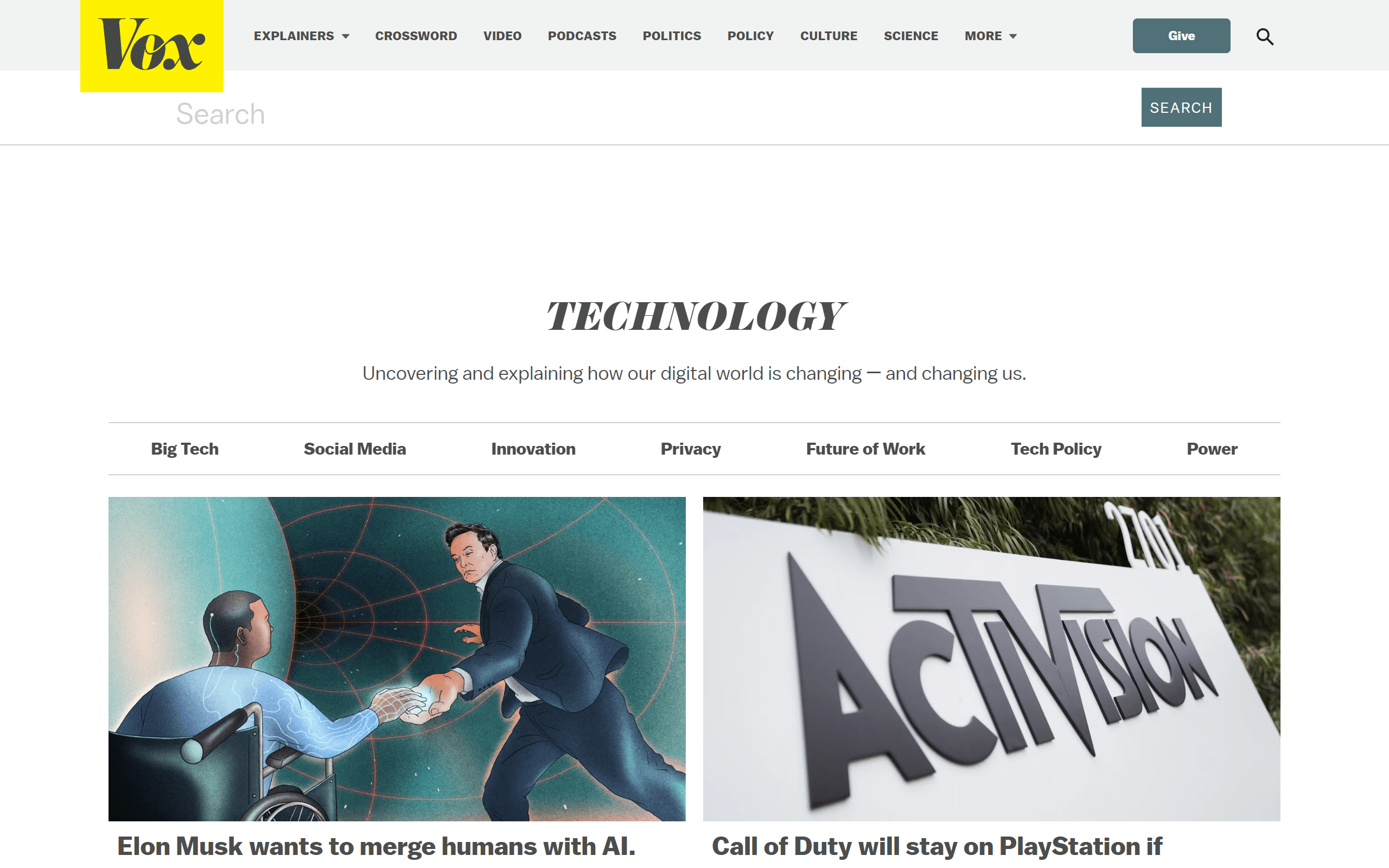Discover Hidden Gems in the Industry with the Best tech blog Referrals
Discover Hidden Gems in the Industry with the Best tech blog Referrals
Blog Article
Exactly How Blockchain Technology Is Revolutionizing Data Protection
Blockchain innovation is fundamentally modifying the landscape of data protection by presenting a decentralized structure that guarantees boosted transparency and durability. Unlike standard systems, which count on central data databases, blockchain disperses information throughout a network, reducing susceptabilities and solitary points of failing. Using innovative cryptographic methods makes certain that data remains tamper-proof, fostering depend on among stakeholders and customers. As markets swiftly adjust to this modern technology, inquiries arise concerning its broader influence and potential difficulties. What effects does this shift hold for future information defense methods and regulative structures? The solutions may amaze you (Best tech blog).
The Essentials of Blockchain
Blockchain technology, an innovative concept in digital information management, basically changes how details is kept and secured. At its core, a blockchain is a distributed ledger that tapes deals across a network of computers, making sure openness and immutability. The modern technology operates a chain of blocks, each including a checklist of deals. As soon as a block is filled, it is time-stamped and linked to the previous block, creating a chronological chain.
Secret to understanding blockchain is the hashing process, which secures purchase data right into a distinct alphanumeric code. This cryptographic feature guarantees that any kind of modification in the purchase data leads to an entirely different hash, thereby securing versus tampering. The consensus device, an additional important part, verifies and verifies brand-new transactions with a network of nodes, therefore eliminating the demand for a centralized authority.
Additionally, blockchain's append-only framework guarantees that information, once included, can not be erased or modified. This characteristic warranties a verifiable and long-term document of purchases, fostering count on among individuals. As an outcome, blockchain provides a robust framework for data stability, using sectors a reputable approach for tracking and managing digital information in a protected, transparent way.
Decentralization and Safety And Security
Decentralization, a core concept of blockchain modern technology, substantially improves information protection by dispersing control across a network instead of relying on a particular, central entity. This circulation mitigates the danger of solitary points of failing, which are prevalent in standard central systems. By dispersing data throughout many nodes, blockchain makes sure that even if one node is jeopardized, the entire network remains protected. This redundancy not just fortifies the honesty of the information yet additionally increases its resilience to cyberattacks and system failings.

Each participant in the network has accessibility to the entire blockchain, permitting them to verify and examine deals individually. Overall, decentralization is critical in improving information protection in blockchain networks.

Cryptographic Strategies
At the heart of blockchain modern technology, cryptographic methods play an essential duty in safeguarding information, ensuring both confidentiality and stability. These strategies are foundational to the blockchain's ability to firmly record transactions in a decentralized way. Cryptography in blockchain utilizes a mix of uneven and symmetrical algorithms to encrypt data, making it available just to authorized parties - Best tech blog. Public and personal essential pairs are main to this process, enabling safe verification and identity verification without disclosing delicate find details.
Hash functions are an additional essential part, transforming input information right into a fixed-size string of characters, properly producing an unique electronic fingerprint for each block. This guarantees that any kind of attempt to alter the data will certainly result in an entirely various hash, therefore keeping the immutability of the blockchain. Additionally, digital signatures validate the credibility and honesty of deals, giving a layer of non-repudiation.
The decentralized nature of blockchain, combined with durable cryptographic strategies, removes the demand for intermediaries, reducing potential susceptabilities. As blockchain innovation advances, improvements in cryptography such as zero-knowledge proofs and homomorphic file encryption remain to improve safety measures, better fortifying information defense in this cutting edge digital ledger system.
Use Instances Throughout Industries

In the healthcare sector, blockchain ensures the protected storage space and sharing of individual documents, advertising interoperability while protecting delicate information from unapproved accessibility. This innovation empowers people with control over their medical background and helps with seamless coordination amongst medical care providers.
Supply chain management benefits significantly from blockchain's unalterable ledger, which makes certain traceability and authenticity of products from origin to customer. By improving openness, blockchain assists alleviate issues such as counterfeiting review and unethical sourcing.
Additionally, blockchain's decentralized nature is reshaping the energy market by allowing peer-to-peer energy trading, where customers can deal excess eco-friendly power straight. This promotes a much more you could look here effective and sustainable energy ecological community.
In the realm of intellectual home, blockchain offers a tamper-proof system for designers to sign up and safeguard their works, guaranteeing rightful acknowledgment and fair settlement. These diverse use situations highlight blockchain's role as an essential pressure in redefining data security across industries.
Future of Data Defense
As we aim to the future of data defense, blockchain technology is positioned to play a pivotal function in securing digital details. With its decentralized and immutable characteristics, blockchain provides a robust structure for protecting delicate data versus unapproved access and cyber hazards. This modern technology makes certain that when data is tape-recorded, it is nearly impossible to change without detection, thus offering a considerable benefit over typical information storage methods.
The assimilation of blockchain with other innovative modern technologies, such as expert system and the Web of Things (IoT), is anticipated to improve data defense strategies better. By leveraging wise agreements, organizations can automate and impose protection procedures, lowering human mistake and boosting effectiveness. Furthermore, blockchain's capability to give clear and traceable purchases will certainly reinforce trust and liability in data administration methods.
As regulatory landscapes progress, blockchain's compliance-friendly nature will end up being significantly pertinent. It can help companies fulfill rigid information protection regulations, such as the General Information Security Guideline (GDPR) and the California Consumer Personal Privacy Act (CCPA), by giving proven documents of data processing tasks. Inevitably, blockchain's one-of-a-kind features setting it as a transformative device in the recurring pursuit to protect the digital world against ever-evolving cyber threats.
Conclusion
Blockchain innovation represents a paradigm change in data safety by leveraging decentralization and cryptographic methods to improve transparency, depend on, and data integrity. As cyber hazards evolve, blockchain arises as a vital device for robust data protection across numerous industries.
Blockchain modern technology is essentially changing the landscape of data security by presenting a decentralized framework that promises boosted transparency and strength. Unlike traditional systems, which rely on central information databases, blockchain disperses information throughout a network, reducing vulnerabilities and single factors of failure.Decentralization, a core concept of blockchain modern technology, substantially improves information safety and security by dispersing control throughout a network rather than relying on a single, central entity.At the heart of blockchain innovation, cryptographic methods play an essential role in safeguarding information, making sure both confidentiality and honesty.Blockchain modern technology stands for a standard change in data security by leveraging decentralization and cryptographic methods to boost transparency, depend on, and data honesty.
Report this page